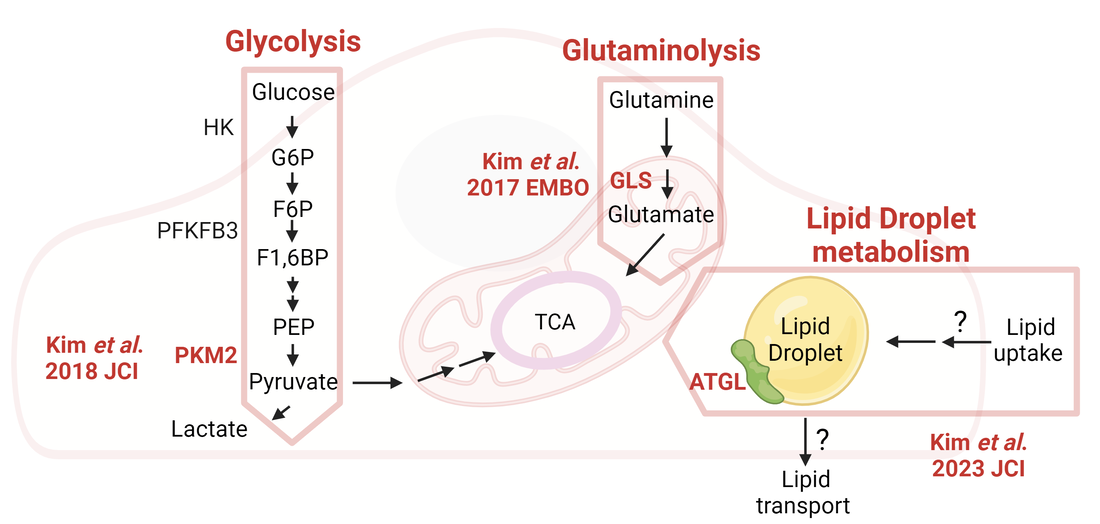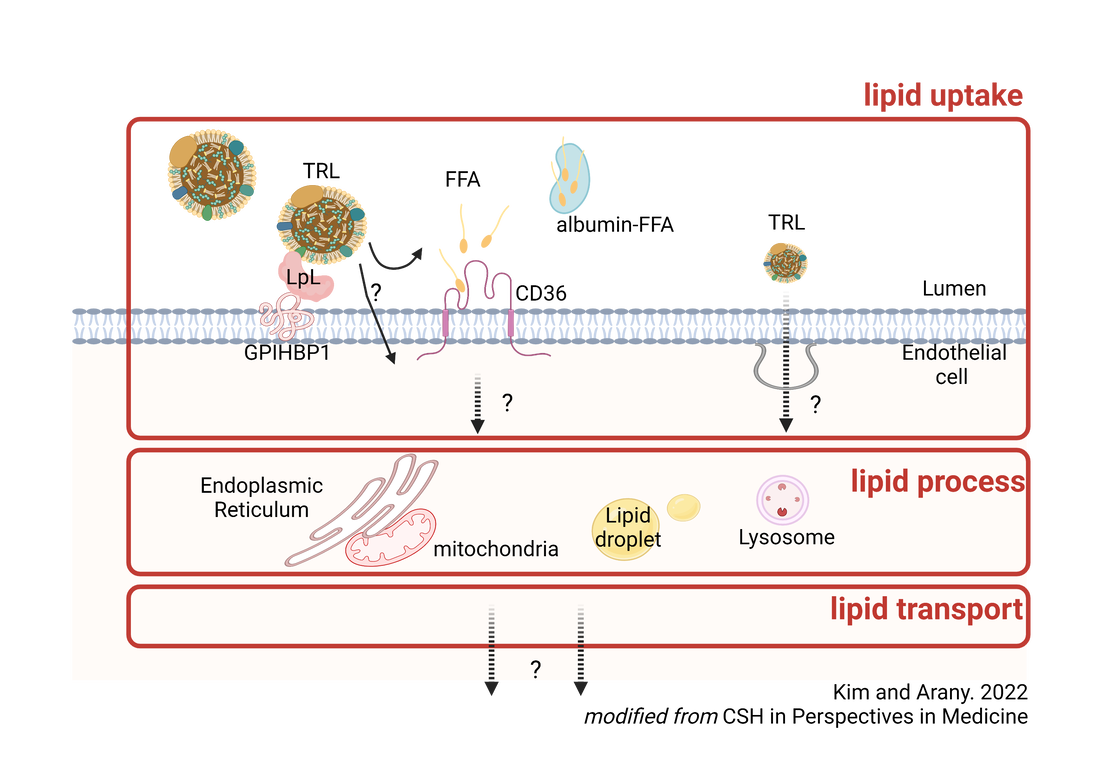ResearchWe study endothelial metabolism !
We do so by leveraging genetically engineered mouse models, in vitro cell culture with physiological and pathophysiological stimuli, isotope metabolite tracing, metabolomics, and genome-wide Crispr screening. |
Comprehensive Understanding of Endothelial Cell MetabolismEndothelial cells, which comprise the innermost wall of all blood vessels, are involved in a broad range of metabolic and cardiovascular diseases that represent a global challenge with high morbidity. The field of endothelial cell metabolism is relatively new but growing rapidly. The endothelium has long been considered a passive organ that lines blood vessel walls; however, recent experimental evidence has demonstrated that endothelial metabolism is an active process, and altered endothelial metabolism can drive disease progression. These findings underscore the importance of comprehensively understanding endothelial cell metabolism, as promoting endothelial heath could provide therapeutic targets. Many details of endothelial metabolism are still largely unknown and how endothelial cells use specific metabolic pathways and how these functions change in contexts of disease needs further investigation.
|
Endothelial Lipid Metabolism in Cardiovascular DiseaseThere remains an extremely limited understanding of endothelial lipid metabolism, despite its potential impact on cardiovascular disease and systemic metabolism. In particular, lipid droplet metabolism in the endothelium itself and/or its contribution to systemic metabolism and health are largely unknown. One of the main goals of our lab is to understand the molecular mechanism of lipid metabolism in and by the endothelial cells, and how it impacts cardiovascular health.
|


